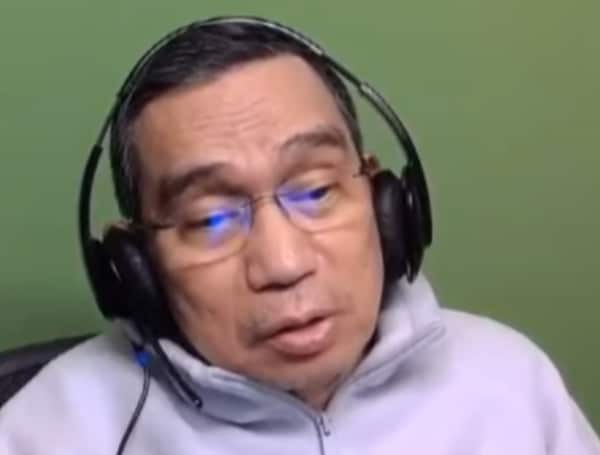Kendall Tietz A Chicago teacher battling cancer condemned a teachers union strike against in-person learning and described it as an attempt t
Kendall Tietz
A Chicago teacher battling cancer condemned a teachers union strike against in-person learning and described it as an attempt to undermine authority and gain political power in an interview with the Daily Caller News Foundation.
Joseph Ocol said he made a commitment to his students and believes his role as a teacher is to be with them in the classroom, even as he fights cancer, the math teacher and chess coach at Ella Flagg Young Elementary School in Chicago, told the Daily Caller News Foundation. The award-winning teacher has been lauded by many as a hero for his decision to continue teaching with cancer amid the Chicago Teachers Union (CTU) strikes.
But, Ocol said he believes the real heroes are the children.
“They’re the ones suffering, and the parents who are trying to make ends meet,” he told the DCNF. “Parents suffer when their children are at home doing remote learning, when these parents are supposed to be working and earning a living for their families.”
“But the real heroes are those kids,” he added. “They have suffered already so much. I’m not the hero, I’m just trying to do my job.”
He said he doesn’t think remote learning is effective and believes the CTU is just trying to undermine authority and dictate school actions to gain political power.
CPS locked teachers out of virtual learning platforms Wednesday and Thursday because of the teachers union’s decision to strike and refuse to teach in person, according to a statement from the school district.
The CTU voted Tuesday to reinstate remote learning effective Jan. 5, citing concerns over safety amid a rise in COVID-19 cases, the union said in a press release.
Nearly 90% of CTU’s elected House of Delegates voted in favor of a resolution to return to remote education amid a surge of COVID-19 cases and the rise of the Omicron coronavirus variant, citing a lack of safety guarantees, the press release said. In the membership-wide vote, 73% of CTU’s members voted in favor of virtual learning, passing the two-thirds threshold required to enact the resolution.
The resolution outlines plans to work remotely until Jan. 18 or until the COVID-19 case wave falls below last year’s threshold for school closures, according to the resolution.
Of the 82 students Ocol teaches, he said none of them have been reported to have COVID.
“Why should I stay home, why should the kids stay home?” he asked. “I don’t have COVID, I don’t have even fellow teachers who have COVID, so why should our school suffer?”
This isn’t the first time Ocol has criticized CTU strikes. He was once a union member, but over time he noticed a disparity between his teaching goals and what was best for his students, and what the union wanted.
On April 1, 2016, CTU strike called for increased funding and teacher pay, which resulted in canceled classes for nearly 400,000 students. Ocol said he couldn’t understand why teachers would abandon their students and classrooms to join the picket-line.
“Kids were waiting, my students were waiting inside the building,” he said. “So it was a choice for me whether or not to be in the picket line with my fellow teachers, or to be with my students … that was an easy decision for me.”
While Ocol said he doesn’t have a problem with the union itself, he does take issue with “officials using the union for personal and political advantage.”
“I didn’t see any correlation between pay increase and benefit to the kids,” he told the DCNF.
Critics from both sides of the political spectrum condemned the decision to strike, accusing the union of harming students’ wellbeing and putting politics ahead of the needs of children, especially minority children who constitute the majority of CPS students.
“The union members, the ordinary ones are the ones getting poorer, while the officials of the union are the ones getting richer,” he told the DCNF. “That’s the sad, sad story with unions … officials are abusing the trust and confidence” they are afforded through union dues and teacher membership.
Ocol said his steadfast commitment to his students began in 2005 when one of his students left school and was reportedly shot dead. He did some research and found that the most dangerous time for kids to be out on the streets was after school between 3 and 6 p.m.
In response, he started an after school chess program for students, whose families often live below the poverty level.
“Eventually we won medals, we won trophies, but somehow that was secondary,” he said. “My intent was to save lives, that’s the purpose of the chess program.”
“My late mother used to tell me … there are only two things that you can leave behind this world … a good name and a good deed,” Ocol said. “I’m just trying to do a good deed, so at least my students will remember me by something.”

COMMENTS